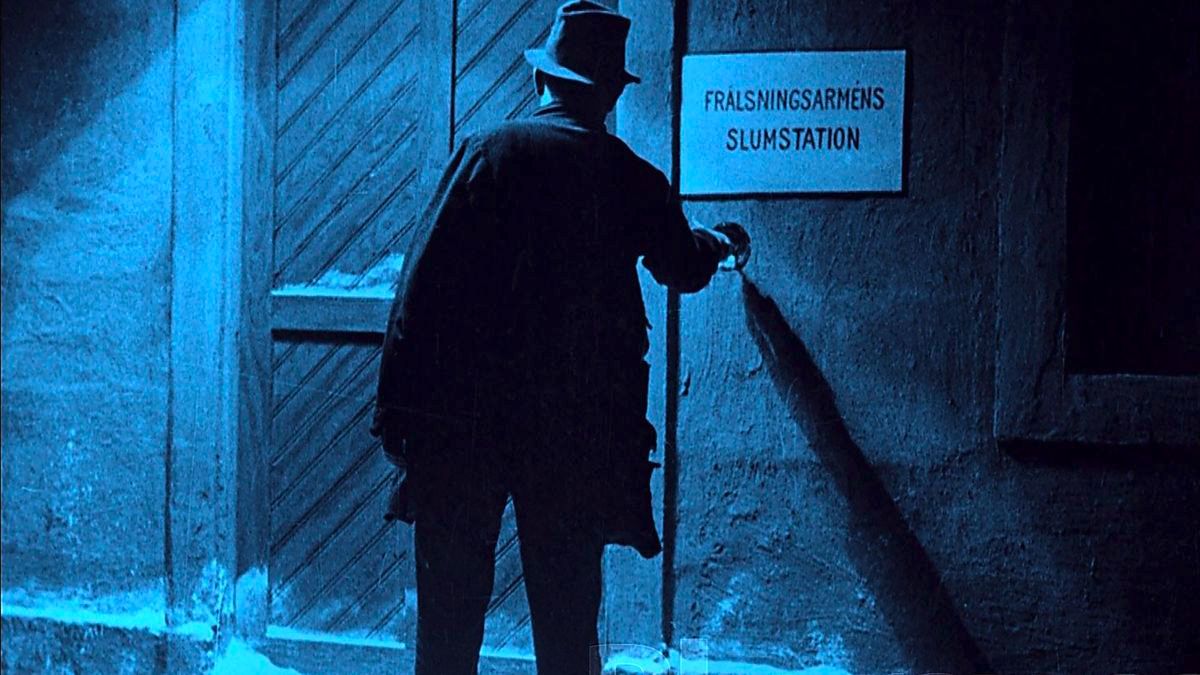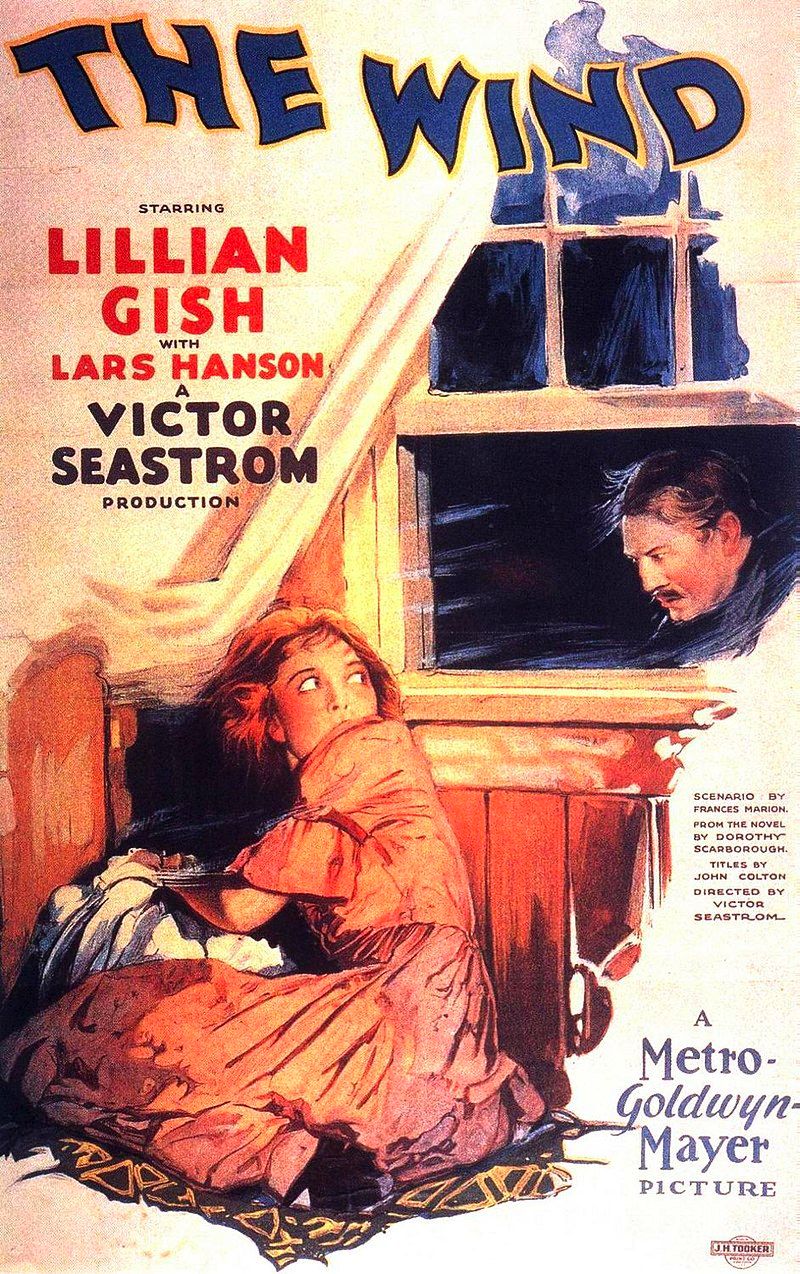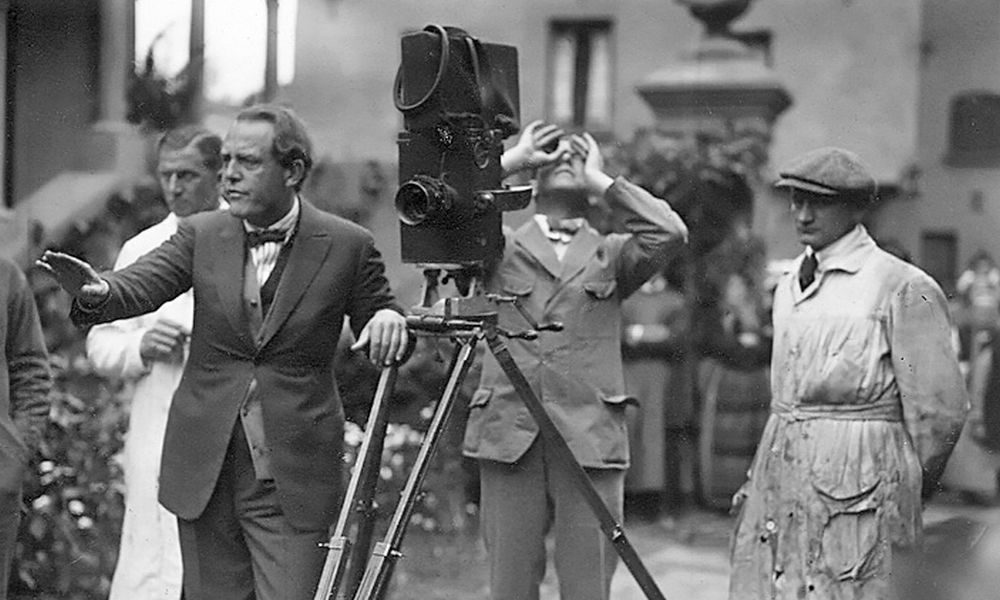"The most influential director, with Mauritz Stiller, of early Swedish cinema. Showing a preference for social problems and filming in natural settings, he illustrated the Swedish literary tradition of the relationship of the landscape and climate with the psychology of the characters." - Ronald Bergan (A-Z of Movie Directors, 1983)
Victor Sjöström
Director / Screenwriter / Producer / Actor
(1879-1960) Born September 20, Silbodal, Värmlands län, Sweden
Top 250 Directors
(1879-1960) Born September 20, Silbodal, Värmlands län, Sweden
Top 250 Directors
Key Production Countries: Sweden, USA
Key Genres: Drama, Melodrama, Silent Film, Fantasy, Psychological Drama, Family Drama
Key Collaborators: Axel Esbensen (Production Designer), Julius Jaenzon (Cinematographer), Charles Magnusson (Producer), William Larsson (Character Actor), Henrik Jaenzon (Cinematographer), Josua Bengston (Character Actor), Emil Fjellstrom (Character Actor), John Ekman (Character Actor), Tore Svennberg (Leading Actor), Lars Hanson (Leading Character Actor), Hildur Carlberg (Character Actress), Jenny Tschernichin-Larsson (Character Actress)
Key Genres: Drama, Melodrama, Silent Film, Fantasy, Psychological Drama, Family Drama
Key Collaborators: Axel Esbensen (Production Designer), Julius Jaenzon (Cinematographer), Charles Magnusson (Producer), William Larsson (Character Actor), Henrik Jaenzon (Cinematographer), Josua Bengston (Character Actor), Emil Fjellstrom (Character Actor), John Ekman (Character Actor), Tore Svennberg (Leading Actor), Lars Hanson (Leading Character Actor), Hildur Carlberg (Character Actress), Jenny Tschernichin-Larsson (Character Actress)
"During the years when European film-making was badly disrupted by the war, the Swedish Cinema, led by Sjöström and Stiller, flourished as never before or since. It set a standard of maturity in the treatment of characters and relationships, in photography and in imaginative power, which even the Americans found hard to match… Assessing Sjöström’s overall career is difficult because nearly all of his earliest silent films have been lost, as well as most of his MGM productions." - Joel W. Finler (The Movie Directors Story, 1985)
"Victor Sjöström entered the Swedish film industry first as an actor and then as a director… In Berg-Ejvind och Hans Hustru (1918) (You and I), Sjöström established one of the most important features of his poetic vision, the discovery of nature: landscape was introduced not only as an integral part of the film’s pictorial beauty, but to provide an illuminating dramatic context for the characters’ actions." - Aleksandar Becanovic (501 Movie Directors, 2007)

The Phantom Carriage (1921)
"During his seven-year residence in Hollywood (1923-1930), “Seastrom,” as he was billed in the US, directed top stars of the day such as Lillian Gish (The Scarlet Letter 1926, The Wind 1927), Greta Garbo (The Divine Woman 1927), Lon Chaney and Edward G. Robinson. In a 1924 interview, Charlie Chaplin called him “the greatest director in the world.” Sjöström made his reputation as a master of silent films by virtue of his expressive imagery and minimal use of titles. With the advent of “talkies,” however, his style of filmmaking was quickly outdated. He returned to Sweden in 1930 and resumed his career on the stage"” - The Virgin International Encyclopedia of Film, 1992
"Sjöström's sensitive portrayals of human psychology, subtle acting style, and use of landscape caught the attention of the postwar French avant-garde and of Hollywood, where he directed films (under the name Victor Seastrom) between 1923 and 1930. Representing a side of modernism not centered on the urban experience, Sjöström's contributions as director and actor form the backbone of a Swedish film tradition that would inspire later filmmakers such as Gustaf Molander, Alf Sjöberg, Jan Troell, Colin Nutley, and, of course, Ingmar Bergman." - Christopher Oscarson (BAMPFA, 2004)
"He was the greatest Swedish director, surpassing his contemporary Stiller and also Bergman, for whom he appeared in one last magnificent role - Professor Isak Borg in Wild Strawberries… He had an instinctive feel for the cinema and, after Ingeborg Holm in 1913 (which could not then have been influenced by Ince), proved his mastery through his characterizations and his way of using sets and landscapes with an absolute stylistic economy." - Georges Sadoul (Dictionary of Film Makers, 1972)
"Allegory, myth, and symbol are elements in the work of Victor Seastrom. His slow, intensely drawn narratives are antecedents of Bergman’s angst-ridden films." - William R. Meyer (The Film Buff's Catalog, 1978)
"Widely regarded as a founding father of Swedish cinema, Victor David Sjöström was also one of the silent cinema’s greatest directors. Though much of his work is now lost, what remains reveals an astonishing talent, with visual beauty, psychological subtlety and restrained performances lending the films a timeless power." - Geoff Andrew (The Film Handbook, 1989)
Selected Filmography
{{row.titlelong}}
Victor Sjöström / Fan Club
Charles Barr, Jan Holmberg, David Cairns, Ingmar Bergman, Ángel González, Peter von Bagh, Jon Wengström, Olivier Assayas, Mathieu Li-Goyette, Juan Cobos, José Luis Guarner, José Manuel Costa.
Charles Barr, Jan Holmberg, David Cairns, Ingmar Bergman, Ángel González, Peter von Bagh, Jon Wengström, Olivier Assayas, Mathieu Li-Goyette, Juan Cobos, José Luis Guarner, José Manuel Costa.
"Fan Club"
These film critics/filmmakers have, on multiple occasions, selected this director’s work within film ballots/lists that they have submitted.
These film critics/filmmakers have, on multiple occasions, selected this director’s work within film ballots/lists that they have submitted.


